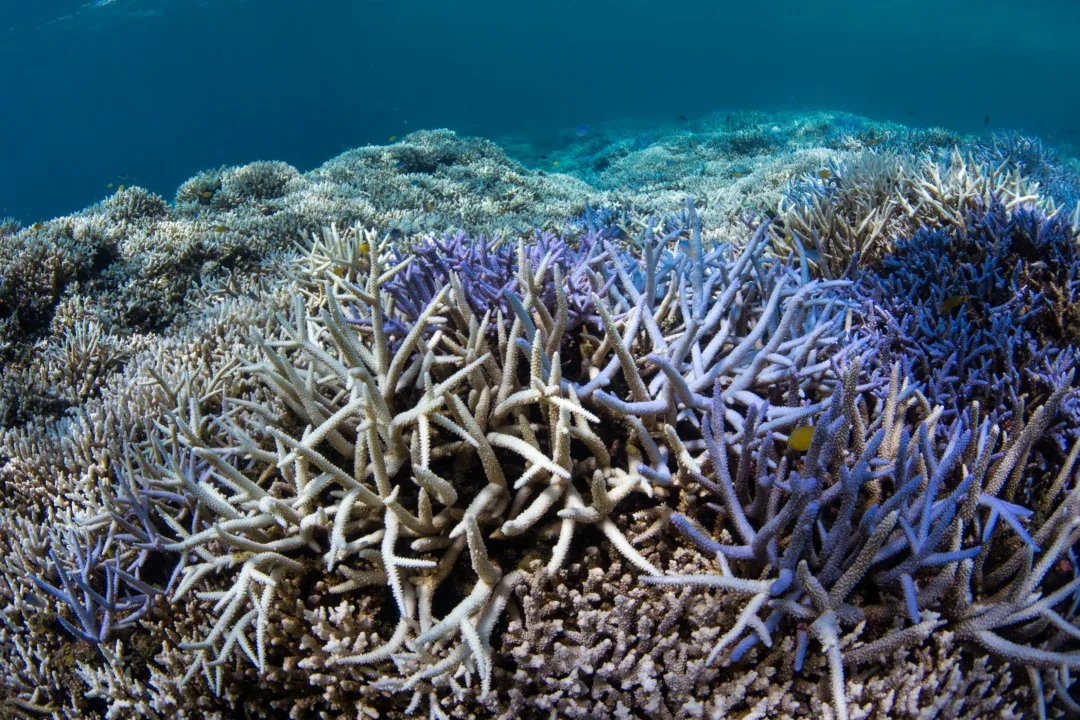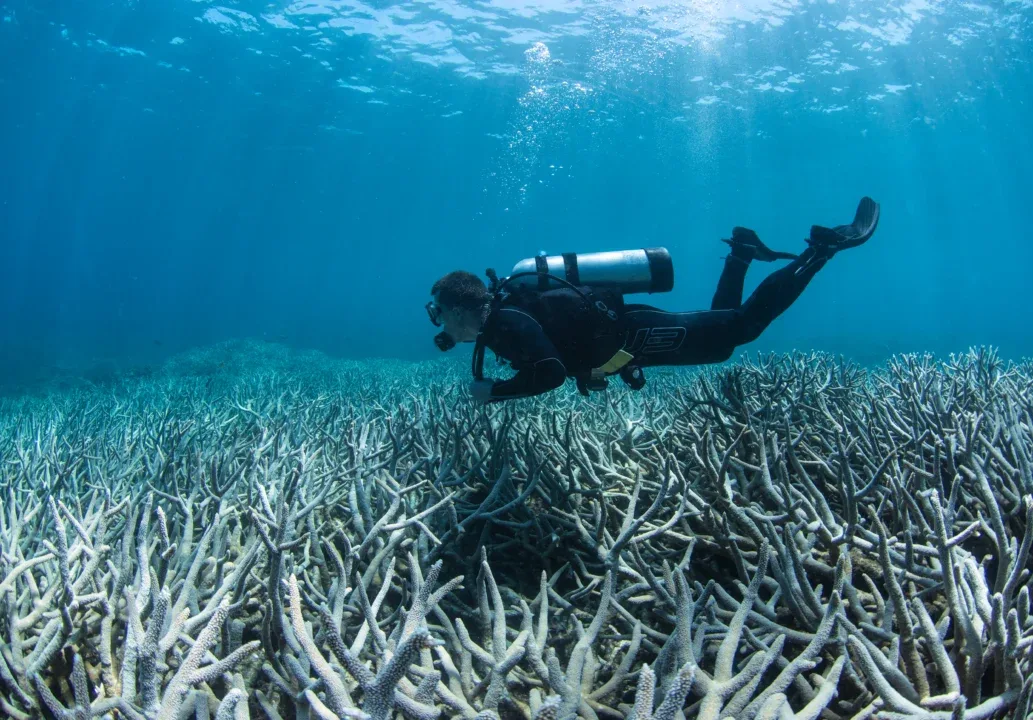
The report details a coral bleaching event in the Chagos Archipelago that occurred from April to June 2024, with observations showing varying levels of bleaching across the region, ranging from 5% to 85%, and an average of 35% coral cover affected. A subsequent survey in November and December 2024 assessed recent coral mortality which may be largely attributed to this bleaching event. Some 51 observations were made across all five atolls and noted a range from 0-95% mortality, but with a mean mortality across the Archipelago of 23%.
The bleaching event coincided with high sea surface temperatures, with the western areas of the Archipelago experiencing the most severe bleaching. Coral bleaching was still ongoing until early June, but by September, bleaching had subsided. Mortality patterns showed considerable variation across different atolls and reef types, with some areas, like the NW Egmont lagoon, showing little to no mortality, while others, like the lagoon knoll in Peros Banhos, experienced nearly total coral loss.
Despite the mortality, the report highlights signs of recovery, particularly in areas with high grazing fish populations that help create space for new coral growth. The Chagos brain coral, a key species in the region, showed some resilience, with few colonies impacted by the bleaching event.
The report stresses that while 23% mortality is significant, it is lower than in previous bleaching events, such as in 2016, and suggests that the Archipelago’s low human pressure and high fish populations may aid recovery. However, long-term impacts on biodiversity and reef structure are uncertain, and recovery rates vary significantly across sites. Further research and regular monitoring are recommended to better understand bleaching onset, mortality patterns, and recovery processes, particularly in the context of future bleaching events.
The study emphasises the need for continued monitoring and support for coral health to ensure more comprehensive and timely data collection across the Archipelago.
Full report by:
- Mark Spalding, Chief Science Advisor British Indian Ocean Territory Administration, Marion Bourasseau, Senior Fisheries Protection Officer, Marine Resources Assessment Group (MRAG) and BIOT Administration, with Lindsey Hollingsworth, Environment Officer, British Indian Ocean Territory Administration and Isha, University of Plymouth

